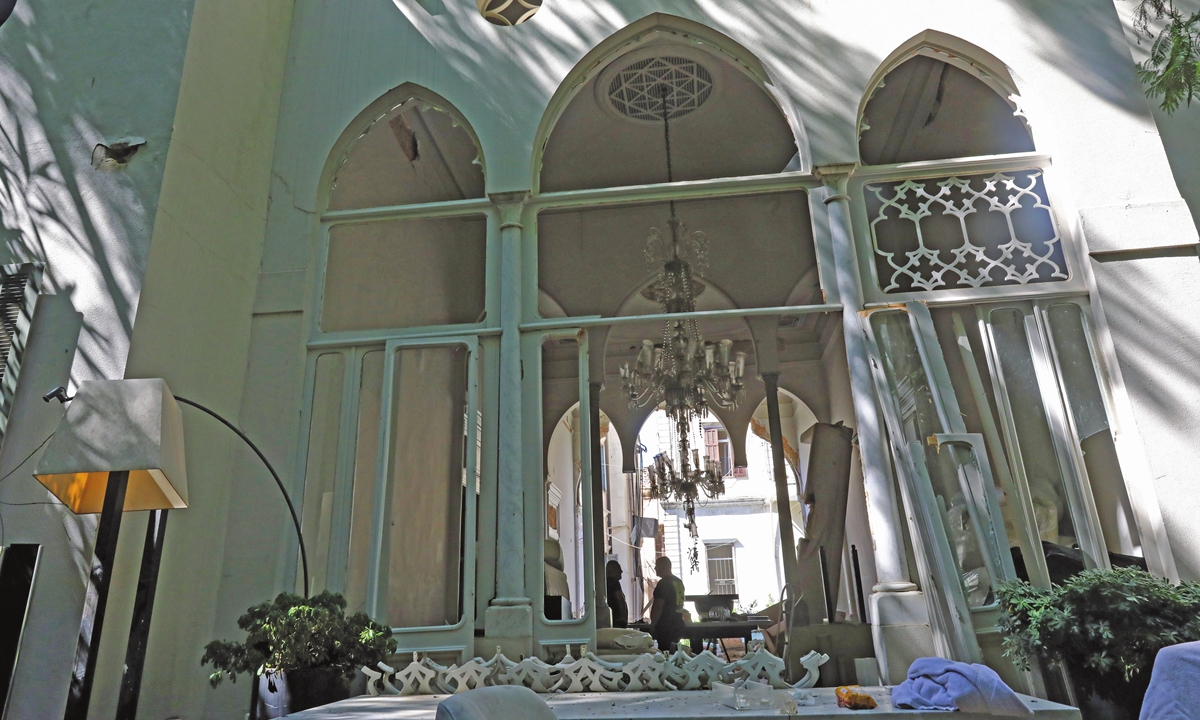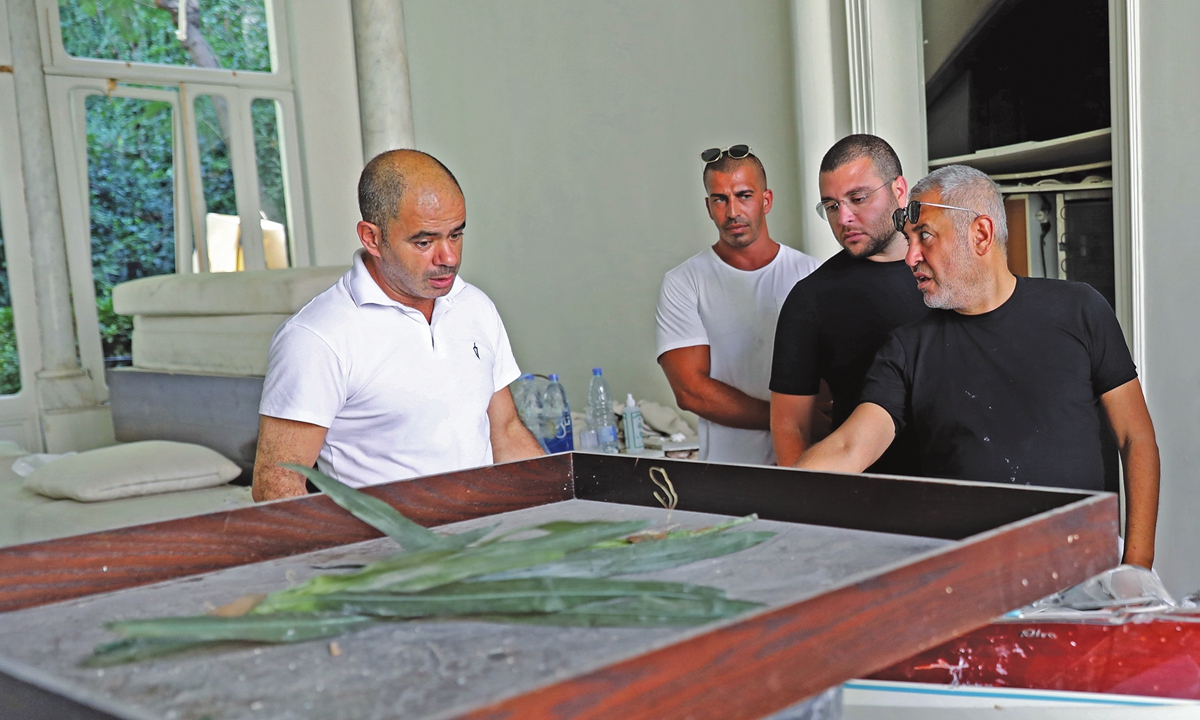Top Lebanese designer Elie Saab returns to gutted Beirut home
Source: AFP Published: 2020/8/19 16:43:40

The facade of Elie Saab's damaged house Photo: AFP

On Monday, Elie Saab (right) and his son Elie Saab Junior (second from right) survey the damage at their traditional house near the Lebanese capital's harbor in the historic Gemmayzeh district that was partially destroyed in the August 4 port blast. Photo: AFP
An emblematic image of the Beirut blast disaster shows the heritage building of one of the city's best-known residents, world-renowned fashion designer Elie Saab, now in ruins."Thank God everyone is OK," Saab told his team on his first visit to the house almost two weeks after the blast, as he picked his way through glass around a damaged marble-top table.
One of Lebanon's most famous exports, Saab has dressed British royal Kate Middleton among a host of A-list celebrities, his gowns gracing numerous red carpets on the likes of Halle Berry and Helen Mirren.
His elegant home overlooking the main street of Beirut's trendy Gemmayzeh district was frequented by celebrities from Lebanon and abroad.
Now, marble columns lie in pieces. Windows and a balcony have been smashed. A chandelier has been reduced to chunks of glass hanging limply from a tangle of wire.
The house, like the whole area, was gutted by the massive August 4 explosion that was caused by a huge stock of ammonium nitrate stored at the nearby port.
The blast disfigured huge swathes of the capital, killed 177 people and injured 6,500 more.
It ripped open the face of Saab's carefully renovated early 20th-century home, exposing one of the few examples of traditional Lebanese architecture left in the city after the 1975-90 civil war.
"This place was alive," Saab's long-time assistant Johnny Zeinoun told AFP.
"To see it like this..." he trailed off, looking at the destruction around him.
Few people were in the house at the moment of the explosion, Zeinoun said as he showed a video of the main hall just after the blast, jagged glass hanging from antique Damascene mother-of-pearl-inlaid mirrors.
The first thing Saab asked was if anyone was hurt, Zeinoun recalled. "He said, 'I don't want to hear that there's any blood.'"
Saab acquired the house in 2006 and renovated it with Venezuela-born, Beirut-based architect Chakib Richani.
"Saab wanted to protect the architectural identity and construction of the house," with its traditional-style arched windows and high ceilings, said fashion journalist Ali Jaffal, who works with the designer.
Pictures published by Architectural Digest in 2009 showed the graceful, airy central hall partitioned by marble columns framing tall triptych windows and warmed by the light of Ottoman-era chandeliers.
Now, it is a scene of destruction. Through a gaping hole, wrecked homes can be seen across the street.
Several of the neighborhoods hardest hit by the blast, including Gemmayzeh, housed art galleries and boutiques.
Their destruction dealt a devastating blow to a creative sector already beleaguered by Lebanon's worst economic crisis since the civil war.
Saab was not the only big name in Lebanese fashion to have a home or business badly damaged.
The headquarters of designer Zuhair Murad, just a stone's throw from the port, were devastated in the blast.
Images shared on social media show detritus spilling out of once-glittering display windows, and lettering hanging loose from the building's facade.
"The efforts of years went in a moment," Murad wrote on Instagram.
And just down the road from Saab's home is the flagship atelier of designer Rabih Kayrouz, housed in the 19th-century Dagher Palace.
Kayrouz posted pictures of the damage, showing chunks of the red-tiled roof blasted off.
"We are leaving... this beautiful lady to recover," Kayrouz wrote on Instagram.
But despite the damage piling more hardship on top of the coronavirus pandemic and the economic crisis, Zeinoun said Saab was committed to rebuilding.
"'We started once, we can start again,'" Saab told him.
Newspaper headline: After the blast
Posted in: FASHION,CULTURE & LEISURE